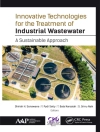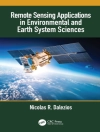Uncertainty analysis is a key component of national GHG inventory analyses. The issues that are raised by the authors in this volume – and the role that uncertainty analysis plays in many of their arguments and/or proposals – highlight the importance of such efforts. Topics include: bottom-up versus top-down emission inventory approaches, compliance and verification issues, signal detection and analysis techniques, compliance with the Kyoto Protocol, and the role of uncertainty in emissions trading schemes.
Tabela de Conteúdo
Accounting for Climate Change: Introduction.- Uncertainties of a Regional Terrestrial Biota Full Carbon Account: A Systems Analysis.- National Greenhouse Gas Inventories: Understanding Uncertainties versus Potential for Improving Reliability.- Practical Policy Applications of Uncertainty Analysis for National Greenhouse Gas Inventories.- Modeling Afforestation and the Underlying Uncertainties.- Spatial GHG Inventory: Analysis of Uncertainty Sources. A Case Study for Ukraine.- Prior to Economic Treatment of Emissions and Their Uncertainties Under the Kyoto Protocol: Scientific Uncertainties That Must Be Kept in Mind.- Processing National CO2 Inventory Emissions Data and their Total Uncertainty Estimates.- Extension of EU Emissions Trading Scheme to Other Sectors and Gases: Consequences for Uncertainty of Total Tradable Amount.- Compliance and Emissions Trading under the Kyoto Protocol: Rules for Uncertain Inventories.- The Impact of Uncertainty on Banking Behavior: Evidence from the US Sulfur Dioxide Emissions Allowance Trading Program.- Tradable Permit Systems: Considering Uncertainty in Emission Estimates.












